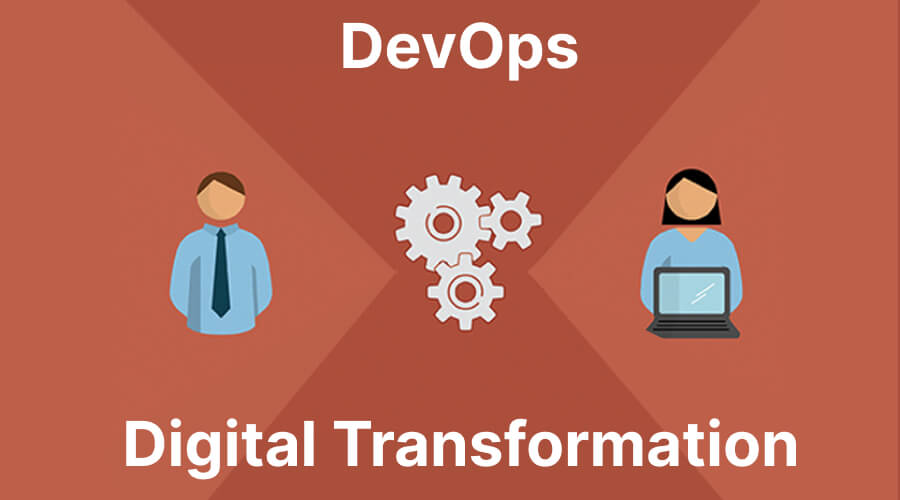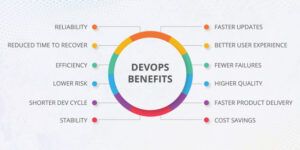
In the current era, DevOps has been adopted by multiple businesses to stay competitive in the market to reach the top position. Moreover, the DevOps framework helps businesses enhance their delivery approach to meet customer needs and stay on top. In this constantly evolving world, it is necessary to adopt the DevOps mindset, where DevOps has the potential to transform the IT world.
Further, by adopting DevOps, businesses can enhance their operational efficiency while developing software. The combination of development and operations teams can create wonders in the growth of IT. However, to get the advantages of DevOps transformation, it is necessary to accept the change for the entire business. Implementing DevOps in your organization might be challenging, but if you know how DevOps transforms IT, you will accept the change and get many benefits out of it.
In this article, you will learn how DevOps transforms IT and its impact.
What is DevOps?
DevOps is a methodology that combines the features of software development and operations. It brings the software developers and IT operations teams together, which improves the speed and quality of software delivery to the market. Moreover, the DevOps approach uses various automation tools and technologies like CI/CD to help smooth software development and deployment.
Further, DevOps transformation includes the change in work culture and its approach by making it more resilient and agile. The primary aim of DevOps transformation is to automate various workflows and support continuous improvement. Through automation, the software delivery process will speed up, and the collaboration of IT teams and the operations department will smoothen the release of software to market. Do you want to collaborate in the VMWare world? Begin by learning VMWare Training!
How DevOps Transforms IT?
The following are some of the ways through which DevOps can transform IT:
1. Faster Time To Market
DevOps can help companies in releasing quality software more quickly. It does so usually by implementing automated software development and deployment processes. Also, business entities may gain a competitive benefit due to the increased ability to deploy new features and updates.
2. Improved Quality
DevOps can help in improving software quality by allowing continuous integration and testing. It helps to find the issues in the previous development process and helps them resolve them. Thus, it will reduce the chances of software crashes and downtime and improve its quality.
3. Better Collaboration
To reduce the silos and improve teamwork, DevOps emphasizes teamwork and communication between IT ops and development teams. Alliance of teams helps resolve many complex issues. However, it brings better results to the organization.
4. Increased Agility
DevOps may help businesses become more responsive, agile, and flexible to changing business needs. Thus, it allows companies to create and distribute software upgrades rapidly. It may help companies adapt to market shifts and customer feedback more successfully.
5. Greater Efficiency
DevOps framework helps business entities to become more efficient and minimize costs by automating manual processes. It also helps to eliminate obstacles. This approach makes the resources free to use to drive business growth innovatively.
How does DevOps help digital transformation?

DevOps speed up the agile development process through automation and other technological changes. It helps companies achieve digital transformation by working in cloud environments, reducing damaging silos, and monitoring security. Further, it improves team collaboration and helps them minimize the time to deploy software on time and fix bugs.
As a part of digital transformation, DevOps inspires companies to know their models and systems well. It will help them enhance their performance to achieve a competitive edge. Also, DevOps breaks the social mindset of companies. It aligns people, processes, and technology to use them in achieving business goals. Using the best DevOps practices such as (CI) continuous integration, (CD) continuous delivery, and IaC, developers can make changes in the software much faster.
Further, it helps companies to develop and release the product faster and reduce the earlier—development model’s cost. Through workflow automation and continuous improvement, DevOps helps companies to achieve digital transformation.
Benefits of using DevOps
The following are some benefits of using DevOps in any business operation.
- Better and swift delivery of the product.
- Reduce complexity and resolve issues.
- Automation and innovation.
- Greater availability, scalability, and agility.
- Great visibility into the systems.
- Improves consistency and stability.
- Improves software quality.
- Helps in digital transformation.
- Saves huge costs.
Conclusion
Thus, the above details specify that DevOps can transform IT by enhancing speed, improving quality, agility, and efficiency with team collaboration. It helps business entities to deliver better and quality software to the market and achieve their business goals effectively. Moreover, many companies greatly transformed their IT operations and software delivery process by adopting the DevOps methodology.
Author Bio:
Pooja Bavireddy is a tech-savvy worker working as a Research Analyst. She is passionate about researching various technologies and startups and dreams big to accomplish multiple goals. She is an expert in presenting information on market-leading technologies such as Pega, VMWare, SAP IBP, Webmethods, SCCM, SAP MDG, SAP FICO, Denodo, and others.






